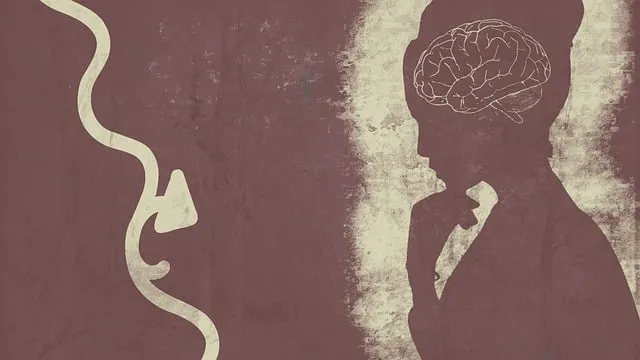Lone Tree Kaiser's Crisis Intervention Teams (CITs) are a vital resource in the complex mental health care landscape, offering swift and specialized support through comprehensive training programs. These programs focus on Mental Health Policy Analysis, Mindfulness Meditation, Emotional Intelligence, self-care, and burnout prevention, revolutionizing crisis intervention with a goal towards immediate assistance, long-term well-being, and community safety. The CITs, comprising trained professionals from diverse backgrounds, enhance patient outcomes, foster cultural competency, and prevent provider burnout, making Lone Tree Kaiser's mental health programs a cornerstone of effective crisis management in the local community.
In today’s complex landscape, crisis intervention teams (CITs) stand as a vital resource in mental health care. These specialized groups play a crucial role in de-escalating high-risk situations and providing essential support. This article explores the critical function of Lone Tree Kaiser mental health programs in training and supporting CITs, highlighting key components for effective training. We delve into the real-world impact of these initiatives on community mental health programs, showcasing their significant benefits.
- Understanding Crisis Intervention Teams: A Vital Resource in Mental Health Care
- The Role of Lone Tree Kaiser Programs in Training and Support
- Key Components of Effective Crisis Intervention Team Training
- Implementation and Benefits: Real-World Impact on Community Mental Health Programs
Understanding Crisis Intervention Teams: A Vital Resource in Mental Health Care

In today’s complex landscape of mental health care, Crisis Intervention Teams (CITs) stand as a vital resource, offering swift and specialized support to individuals in distress. These teams, composed of trained professionals from various disciplines, serve as a crucial safety net for those facing acute mental health crises. At Lone Tree Kaiser mental health programs, we recognize the critical role CITs play in enhancing patient outcomes and community resilience.
Through comprehensive training programs, such as those focused on Mental Health Policy Analysis and Advocacy, Mindfulness Meditation techniques, and Mental Health Awareness, Lone Tree Kaiser equips individuals to effectively navigate crisis situations. By fostering a culture of empathy, compassion, and informed decision-making within these teams, we aim to revolutionize mental health support, ensuring that folks receive the immediate assistance they need, thereby promoting long-term well-being and community safety.
The Role of Lone Tree Kaiser Programs in Training and Support

Lone Tree Kaiser mental health programs play a pivotal role in crisis intervention team training, offering specialized support and comprehensive education. These programs are meticulously designed to equip individuals with the skills needed to recognize and respond effectively during mental health crises. Through interactive workshops and engaging sessions, participants learn emotional well-being promotion techniques tailored to diverse populations.
The Mental Health Education Programs Design implemented by Lone Tree Kaiser focuses on practical strategies for stress management, fostering a supportive environment where trainees can enhance their problem-solving abilities. These programs not only train individuals in crisis intervention but also provide ongoing support, ensuring that team members are equipped to handle complex situations with empathy and professionalism.
Key Components of Effective Crisis Intervention Team Training

Effective crisis intervention team (CIT) training programs at Lone Tree Kaiser mental health facilities focus on several key components to ensure the well-being and success of both providers and clients. Firstly, these programs emphasize Emotional Intelligence, equipping teams with skills to recognize, understand, and manage their own emotions, as well as those of others in crisis situations. This fosters empathetic connections and effective communication.
Additionally, training incorporates Self-Care Routine Development for Better Mental Health to prevent burnout among healthcare providers. By teaching coping mechanisms and stress management techniques, CIT programs promote resilience and ensure that team members can maintain their own mental health alongside providing support to others. Furthermore, Burnout Prevention Strategies for Healthcare Providers are integral to these training modules, aiming to equip teams with tools to recognize and address signs of burnout early on, thereby enhancing the overall quality and sustainability of crisis intervention services.
Implementation and Benefits: Real-World Impact on Community Mental Health Programs

The implementation of crisis intervention team training programs has significantly enhanced Lone Tree Kaiser mental health programs’ capacity to address acute psychiatric emergencies. These specialized teams, comprised of healthcare providers and other community members, are equipped with essential skills for de-escalating crises and providing immediate support. The real-world impact is profound; by integrating these teams into existing services, Lone Tree Kaiser has witnessed improved outcomes for patients facing severe mental health crises.
The benefits extend beyond individual cases. Training programs foster cultural competency among healthcare providers, enabling them to offer more personalized care tailored to diverse community needs. This approach not only enhances patient coping skills development but also promotes burnout prevention by equipping professionals with the tools to navigate complex and emotionally demanding situations effectively. As a result, Lone Tree Kaiser’s ability to deliver robust mental health services has been strengthened, positively impacting the overall well-being of the local community.
Crisis intervention team (CIT) training, as facilitated by programs like Lone Tree Kaiser’s, is a game-changer in mental health care. By equipping professionals with the necessary skills and support, these initiatives enhance community resilience and improve outcomes for individuals facing crises. The key lies in comprehensive training that includes education, role-playing, and ongoing support, all of which are integral to the success of CIT programs. Lone Tree Kaiser’s approach underscores the importance of such interventions in fostering a more responsive and effective mental health support system.






